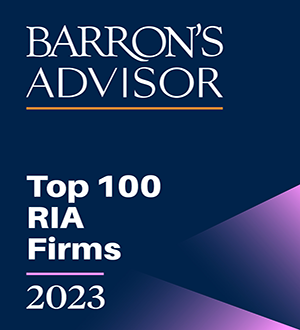Bridging Generational Divides: Estate Planning Strategies for Family Unity
By Argent Wealth Management, LLC on August 4, 2022

Six easy steps can help you transfer your assets without creating conflict
We all know — or even belong to — a family that has suffered from conflict following the death of a loved one and a “change of control” in family assets. This outcome, of course, almost always runs contrary to the deceased’s hopes and intentions for the wealth they worked hard to steward during their lifetime.
Why is this such a common outcome? How can families prevent it? Answers to these questions are becoming increasingly important as more than 70 million baby boomers approach the later stages of their life and begin passing an estimated $60 trillion to their heirs.[i]
To help you and your family promote — rather than erode — unity as part of your legacy, we spoke to David Work, head of estate and financial planning for Hightower Advisors. In his role, and for most of his career, David has helped families structure estate plans that not only seek optimal financial outcomes but also promote positive family dynamics across generations.
Every family is different, but here are some strategies to promote family unity that David has seen lead to more successful wealth transfers.
1. Engage in philanthropy together
Research shows that sharing in philanthropy can bring families closer together — provided they actually share the experience, rather than the older generation dictating it. For example, Fidelity’s Center for Family Engagement refers to this shared approach as “practicing peership,” whereby families resist default hierarchies, including parent-child, to allow for two-way communication flow as family members share where and why they seek to make an impact.[ii] Often this starts with parents and grandparents recalling their past and sharing the experiences that shaped them and led them to the causes they care about. This helps engage the younger generation in ways that only storytelling can.
Likewise, the younger generation can open up about what they care about, how they see the world and what’s important to them. When both sides truly listen, they become more interested in the other side’s causes and often find overlap, creating a shared philanthropic purpose. Sometimes this leads families to become involved in the same causes. Sometimes it simply allows them to be more supportive of each other as they pursue their own goals. In almost all cases, it helps families bond through storytelling and shared purpose, making them less vulnerable to conflict down the road.
2. Create a family mission statement
Another useful approach for creating shared purposes — and greater unity — is a family mission statement. A family mission statement seeks to capture your family’s purpose, goals and values. And just as with shared philanthropy, it works best if it reflects contributions from the entire family, including the younger generation. This means listening to each other, being open-minded and finding common ground that motivates everyone in the family. The statement does not need to be long. Nor does it need to be formal. You can write it together around a campfire, in the car or lounging on the couch. You can frame it, or simply put it on the refrigerator. And it can be as simple as, “Work hard, seek adventures and act with kindness.” There are also more formal approaches you can take that can further integrate your family mission statement with your estate planning documents. It doesn’t have to be perfect. The most important thing is to engage in the exercise — and do it together.
3. Communicate your intentions to your loved ones
More often than not, estate plans are communicated to family members posthumously. This opens the door to unresolved questions about the deceased’s intentions and whether they are being properly carried out, which often leads to resentment and lasting conflict. Having a dialogue can prevent this outcome. To do so, bring your family together and share your plan for your assets, and most importantly, the philosophy behind the plan. These conversations can be very difficult to initiate, but they pay off — not only by preventing conflict, but by facilitating intimate conversations that allow families to communicate unspoken feelings and understand each other better.
4. Communicate your intentions to your attorney
Sharing your intentions — not just how you want to allocate your assets — with your attorney can also help preserve family unity because it can lead to more appropriate provisions in your trust and will. Don’t forget, your attorney is a “counselor-in-law.” If you step back and share your overarching goals (e.g., supporting children in impactful but underpaid professions, balancing your desire to take care of your children without spoiling them, avoiding conflict between your children and your spouse), your attorney can counsel you on the estate planning techniques and language that best align with those objectives. For example, trusts can have a wide range of distribution standards that range from emergency use only to the sole discretion of the trustee. If your attorney knows your end goals, she or he can help you choose the most suitable standard for your family’s situation. Simply defaulting to commonly used standards —such as for health, education, maintenance and support — may not align with your intentions or your beneficiaries’ expectations.
5. Communicate your intentions for personal property
Even in the wealthiest of families, the smallest of items — a coin, a clock, an antique plate, etc. — have been known to tear people apart. In one family, a medal given by a stepmother to a stepchild with nothing but the best intentions after her spouse passed away led to the demise of the stepchild’s relationship with her sister and both sisters’ relationship with their stepmother. The sentimental value of such items should not be underestimated and can be addressed simply by including a memorandum of personal property in your will and communicating your desires to your loved ones ahead of time.
6. Choose objective fiduciaries
When selecting those individuals responsible for executing your estate plan — most notably, your trustee(s) and estate executor — you may tend to default to a family member based on what seems like reasonable criteria, e.g., the eldest child, a lawyer in the family, a family member who is particularly good with numbers, etc. But these decisions don’t always take into account family dynamics or the individual’s capacity constraints. Naming your eldest child to make distribution decisions impacting their younger siblings can cause bickering. Naming your attorney daughter, who is already short on time, to settle your estate may cause her to feel resentment toward a sister who moved out of state. Carefully consider such dynamics before naming your fiduciaries, and decide if naming a completely objective individual or corporate entity could be the right solution for your family.
Family dynamics are complex and powerful, yet they are often significantly underrepresented in estate planning discussions and decisions. Conversations often default to the less complicated, more quantifiable aspects of wealth transfer. This is one reason many of us know families that have been torn apart when money changes hands.
As holistic financial planners who care about our clients’ well-being — not just their net worth — we can collaborate with you, your attorney and other advisors to help you build and communicate a plan that appreciates and values the unique forces at play in your family. Please reach out to us for help building or revising your estate plan.
[i] Habbershon, Timothy, Dr., Donath, Tobias, “Navigating the Decade of Generational Wealth,” Fidelity Investments, 2022.
[ii]Habbershon, Timothy, Dr., Donath, Tobias, “What charitable giving can give your family,” Fidelity Center for Family Engagement, March 1, 2022, https://www.fidelity.com/learning-center/wealth-management-insights/multigenerational-family-philanthropy. Accessed July 1, 2022.
Disclosures:
Argent Wealth Management, LLC is a group comprised of investment professionals registered with Hightower Advisors, LLC, an SEC registered investment advisor. Some investment professionals may also be registered with Hightower Securities, LLC, member FINRA and SIPC. Advisory services are offered through Hightower Advisors, LLC. Securities are offered through Hightower Securities, LLC. All information referenced herein is from sources believed to be reliable. Argent Wealth Management, LLC and Hightower Advisors, LLC have not independently verified the accuracy or completeness of the information contained in this document. [Advisor Practice] and Hightower Advisors, LLC or any of its affiliates make no representations or warranties, express or implied, as to the accuracy or completeness of the information or for statements or errors or omissions, or results obtained from the use of this information. Argent Wealth Management, LLC and Hightower Advisors, LLC or any of its affiliates assume no liability for any action made or taken in reliance on or relating in any way to the information. This document and the materials contained herein were created for informational purposes only; the opinions expressed are solely those of the author(s), and do not represent those of Hightower Advisors, LLC or any of its affiliates. Argent Wealth Management, LLC and Hightower Advisors, LLC or any of its affiliates do not provide tax or legal advice. This material was not intended or written to be used or presented to any entity as tax or legal advice. Clients are urged to consult their tax and/or legal advisor for related questions.
Sign up to receive more information about Argent's Services and Solutions.
Argent Wealth Management, LLC is a group comprised of investment professionals registered with Hightower Advisors, LLC, an SEC registered investment adviser. Some investment professionals may also be registered with Hightower Securities, LLC (member FINRA and SIPC). Advisory services are offered through Hightower Advisors, LLC. Securities are offered through Hightower Securities, LLC.
This is not an offer to buy or sell securities, nor should anything contained herein be construed as a recommendation or advice of any kind. Consult with an appropriately credentialed professional before making any financial, investment, tax or legal decision. No investment process is free of risk, and there is no guarantee that any investment process or investment opportunities will be profitable or suitable for all investors. Past performance is neither indicative nor a guarantee of future results. You cannot invest directly in an index.
These materials were created for informational purposes only; the opinions and positions stated are those of the author(s) and are not necessarily the official opinion or position of Hightower Advisors, LLC or its affiliates (“Hightower”). Any examples used are for illustrative purposes only and based on generic assumptions. All data or other information referenced is from sources believed to be reliable but not independently verified. Information provided is as of the date referenced and is subject to change without notice. Hightower assumes no liability for any action made or taken in reliance on or relating in any way to this information. Hightower makes no representations or warranties, express or implied, as to the accuracy or completeness of the information, for statements or errors or omissions, or results obtained from the use of this information. References to any person, organization, or the inclusion of external hyperlinks does not constitute endorsement (or guarantee of accuracy or safety) by Hightower of any such person, organization or linked website or the information, products or services contained therein.
Click here for definitions of and disclosures specific to commonly used terms.


